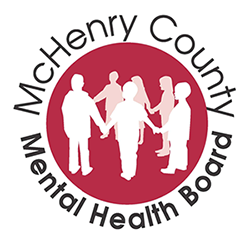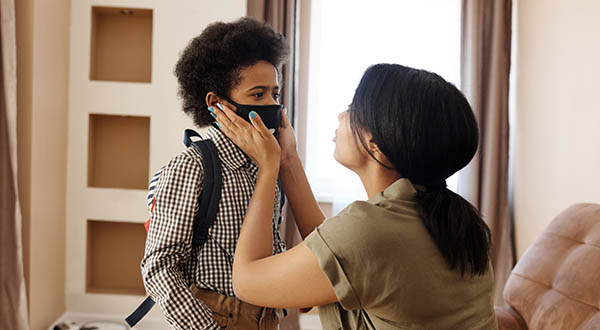Struggling to keep children healthy, occupied, engaged and informed to their level of understanding? The Child Mind Institute offers help to calm fears, managestress, and keep the peace in families.
Keep your routines in place
Setting routines and keeping them in place is key, especially when at home all day. Kids should get up, eat, and go to bed at their normal times. Consistent structure can be calming during times of stress. Kids, especially younger ones, or those who are anxious, benefit from knowing what’s going to happen and when. The schedule should reflect school or day camp, changing activities at predictable intervals, alternating between periods of study and play. To help prevent meltdowns, print the schedule and go over it with frequent reminders of the daily plan and the transition from one thing to the next.
Be creative about new activities – and exercise
Incorporate new activities into your routine, like doing a puzzle or having a family game time. Build in activities that help everyone get some exercise (avoiding physical contact with other kids). Daily walks or bike rides clear the mind and introduce fresh oxygen into the heart and lungs. Try yoga to calm and center with breathing exercises. Challenge yourself to create activities and exercise without devices or screens. Arts and crafts, music and science, even household projects can be a fun way to work together and make memories.
Manage your own anxiety
Keeping your worries in check will help your whole family navigate this uncertain situation as easily as possible. For those moments when you find yourself feeling anxious, try to avoid talking about your concerns where your children can listen. If you feel overwhelmed, step away and take a break. Step outside and take a few deep breaths, take a shower or bath, go into another room, count your blessings.
Limit consumption of news
Staying informed is important. Determine news sources you trust to provide the facts instead of opinions and extreme examples. Too much information can overwhelm. Limit your consumption of news and social media that may feed your anxiety and that of your family. Explore programming and social media that provide content which will relieve focus on the crisis and expand your positive energy with nature, art, baking, music or crafts.
Stay in touch virtually
Keep your support network strong, even when you are only able to call or text friends and family. Socializing is important to help regulate your mood and keep you grounded. Children need their social networks, too. Allowing children to use social media, Skype or FaceTime to virtually see and speak with friends will reduce stress that comes from unusual circumstances in their world. Technology can connect with grandparents, cousins and family friends. Sharing video clips of children singing, dancing and describing their activities for the day brings people closer and adds joy.
Make plans and memories
Be proactive about what you can control. Making plans helps you visualize the near future. Explore options and ideas with your children to gather their input on future plans for play dates, trips, outside activities, and events. Make lists together and allow your kids to add to the lists over time. Imagine the memories that will come from the future plans. Discuss memories from past events and activities.
Keep it positive
Though adults are feeling apprehensive, to most children staying home from school is a treat. Validate the feeling of excitement and use it as a springboard to help children stay calm and happy. Let your children know that you are glad they are excited, but make sure they understand that though it may feel like vacation, things are different. Remind them that there will still be school work, schedules and
expectations to be met.
Keep kids in the loop – but keep it simple
Talking to children in a clear, reasonable way about what is happening in our world is the best way to help them understand. But, kids don’t need to know every little thing. Unless they ask specifically, there is no need to volunteer information that might worry or upset them. Older kids can handle and expect to receive more detail, but be thoughtful about what you share and how you react to the situation.
Check in with little kids
Young children may be oblivious to the facts of the situation, but they may still feel unsettled by the changes in routine, or pick up on the people around them who are worried and upset. Check in with your young children periodically. Give them a chance to process their worries or confusion. Anxious feelings may be demonstrated through tantrums, being defiant and acting up. Try to respond to outbursts in a calm, consistent and comforting manner.
Sometimes the path of least resistance is the right path
Be reasonable and kind to yourself. We all want to be the best parent we can be. Sometimes that best self is one that gives allowance to the situation. It’s okay to relax the boundaries a little bit. Explain to your kids that this is a unique situation and boundaries will be re-instituted when life becomes more normal. As you problem-solve proactively in a crisis, you model for your children how
they can react to future difficulties. This is instructive and reassuring for children.
Accept and ask for help
If you have a partner at home, agree to trade off childcare. Give yourself a break and some breathing space. Everyone who can pitch in, should. Give kids age appropriate jobs. Work as a team when possible to prevent any one person from being overwhelmed. Set small goals and celebrate their achievement. Doing dishes, making a meal, cleaning a closet or sorting a drawer are as important as completing school assignments. Be creative and flexible. Don’t be too hard on yourself. Find a balance for your family that works. Stay home, stay together, sane
and safe.





